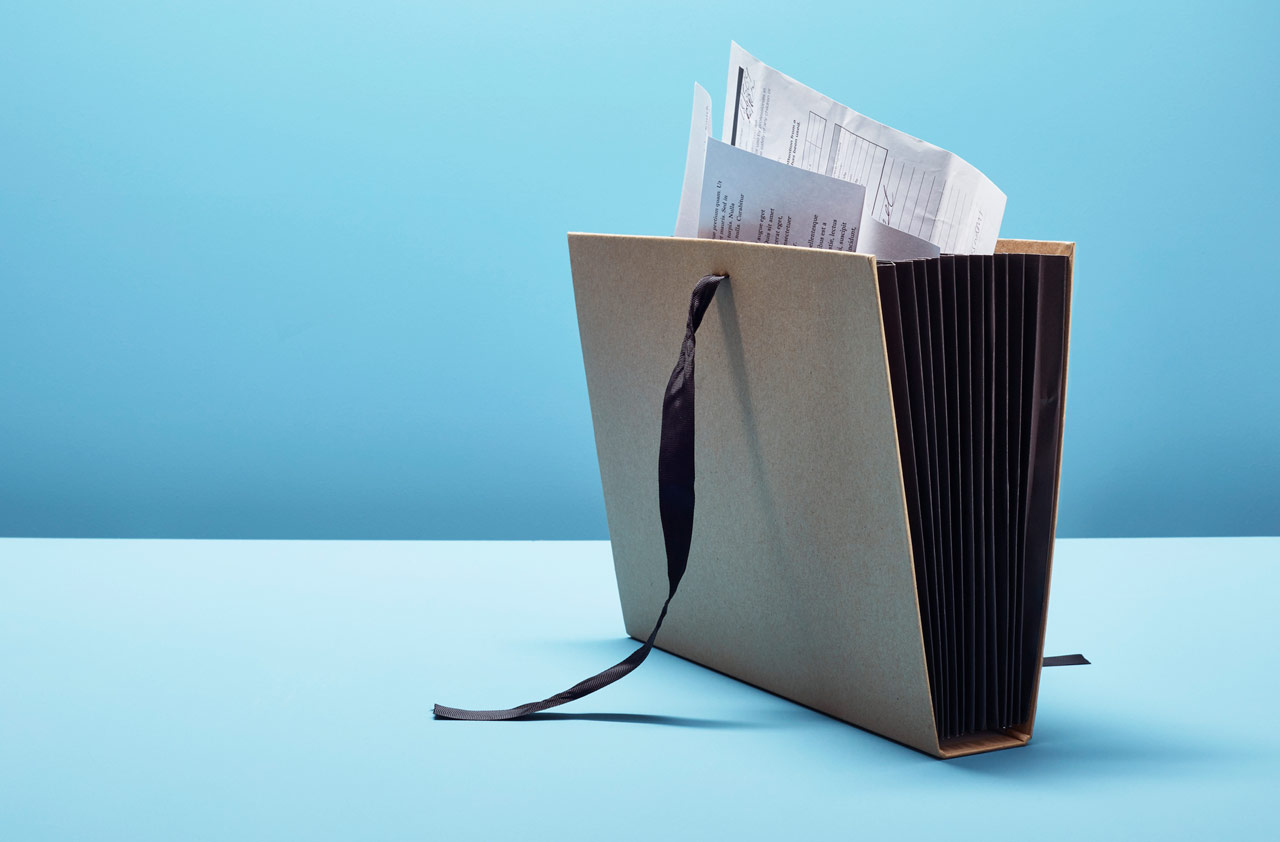Who Can DIY Their Taxes – and Who Should Use a Pro
For a lot of people, even money-savvy financial planners, it makes perfect sense to outsource this task ... and not just because it's aggravating.

Profit and prosper with the best of Kiplinger's advice on investing, taxes, retirement, personal finance and much more. Delivered daily. Enter your email in the box and click Sign Me Up.
You are now subscribed
Your newsletter sign-up was successful
Want to add more newsletters?

Delivered daily
Kiplinger Today
Profit and prosper with the best of Kiplinger's advice on investing, taxes, retirement, personal finance and much more delivered daily. Smart money moves start here.

Sent five days a week
Kiplinger A Step Ahead
Get practical help to make better financial decisions in your everyday life, from spending to savings on top deals.

Delivered daily
Kiplinger Closing Bell
Get today's biggest financial and investing headlines delivered to your inbox every day the U.S. stock market is open.

Sent twice a week
Kiplinger Adviser Intel
Financial pros across the country share best practices and fresh tactics to preserve and grow your wealth.

Delivered weekly
Kiplinger Tax Tips
Trim your federal and state tax bills with practical tax-planning and tax-cutting strategies.

Sent twice a week
Kiplinger Retirement Tips
Your twice-a-week guide to planning and enjoying a financially secure and richly rewarding retirement

Sent bimonthly.
Kiplinger Adviser Angle
Insights for advisers, wealth managers and other financial professionals.

Sent twice a week
Kiplinger Investing Weekly
Your twice-a-week roundup of promising stocks, funds, companies and industries you should consider, ones you should avoid, and why.

Sent weekly for six weeks
Kiplinger Invest for Retirement
Your step-by-step six-part series on how to invest for retirement, from devising a successful strategy to exactly which investments to choose.
There are always a handful of people that I run into this time of year who like to brag about the fact that they do their own taxes. Always have, they say — and always will.
The Cost of Financial and Tax-Related Mistakes
It’s all of those things above that can lead to less money in your pocket (not to mention a whole lot more stress and a lot less free time to enjoy things I assume you’d rather do than your own taxes). Any errors that you make on your tax return are likely to be far more expensive than any fees you’ll pay to a CPA.
The challenge with any tax-related mistake is that things tend to compound over time. Say you miss something on your tax return this year and pay less in taxes than you actually owed. If you get audited down the road, the IRS isn’t going to just shrug it off as “oh well, everyone makes mistakes.” You’re going to owe what you didn’t pay — with interest and penalties, too. According to the IRS, interest accrues on any unpaid tax from the due date until full payment is made, and late-payment penalties can add up to a maximum of 25% of the amount owed.
From just $107.88 $24.99 for Kiplinger Personal Finance
Become a smarter, better informed investor. Subscribe from just $107.88 $24.99, plus get up to 4 Special Issues

Sign up for Kiplinger’s Free Newsletters
Profit and prosper with the best of expert advice on investing, taxes, retirement, personal finance and more - straight to your e-mail.
Profit and prosper with the best of expert advice - straight to your e-mail.
Making big mistakes that cost serious money or opportunities simply aren’t worth it. Not when it’s your hard-earned money on the line.
Who Needs a CPA – and Who Can Get Away with DIY
In general, most people will benefit from using a CPA. Even if your financial situation is relatively straightforward, you’ll save time and energy by getting help from a professional. You’ll also get added peace of mind that someone who lives and breathes taxes reviewed your situation. This makes mistakes less likely than if you did your taxes on your own, and also increases the likelihood that you’ll take advantage of every opportunity you can to reduce your tax bill.
All this being said, not everyone needs a CPA. Here’s a good general rule of thumb to use to help you determine if you can DIY: Do you have one source of income via a W2 from a single employer? Then you can probably get away with doing your own taxes. But the moment your financial situation gets any more complicated than that — say you earn 1099 income (even if it’s on the side of your full-time job and you don’t consider yourself “self-employed”) or you have enough deductions that you think it makes sense to itemize — it’s a good idea to find a CPA who can help you.
At the very least, you’ll save yourself time and stress, and any fee you pay to free up more time while reducing your stress is probably going to be well worth the cost.
Profit and prosper with the best of Kiplinger's advice on investing, taxes, retirement, personal finance and much more. Delivered daily. Enter your email in the box and click Sign Me Up.

Eric Roberge, CFP®, is the founder of Beyond Your Hammock, a financial planning firm working in Boston, Massachusetts and virtually across the country. BYH specializes in helping professionals in their 30s and 40s use their money as a tool to enjoy life today while planning responsibly for tomorrow.
Eric has been named one of Investopedia's Top 100 most influential financial advisers since 2017 and is a member of Investment News' 40 Under 40 class of 2016 and Think Advisor's Luminaries class of 2021.
-
 Hosting a Family Reunion? 10 Essentials for a Lasting Legacy
Hosting a Family Reunion? 10 Essentials for a Lasting LegacyRekindle old friendships, pass down traditions and have a ball at your family reunion. We answer 10 common planning questions.
-
 Tied Up in a Concentrated Stock Position? How to Get Loose
Tied Up in a Concentrated Stock Position? How to Get LooseIf you've built significant wealth through stock in one company, deciding your next move may be petrifying. Use this decision-making framework to get unstuck.
-
 How Your IRA Can Work for Change and Help the Next Generation
How Your IRA Can Work for Change and Help the Next GenerationUnhappy with the environmental and social impact of your investments? An impact fund that aligns your portfolio with your values could make all the difference.
-
 Tied Up in Knots Over a Concentrated Stock Position? This Strategy Will Help You Unravel
Tied Up in Knots Over a Concentrated Stock Position? This Strategy Will Help You UnravelIf you've built significant wealth through stock in one company, deciding your next move may be petrifying. Use this decision-making framework to get unstuck.
-
 How to Put Your IRA to Work for Change and to Help the Next Generation, Courtesy of an Investment Adviser
How to Put Your IRA to Work for Change and to Help the Next Generation, Courtesy of an Investment AdviserUnhappy with the environmental and social impact of your investments? An impact fund that aligns your portfolio with your values could make all the difference.
-
 A Wake-Up Call and a Healthy Dose of Terror: How to Survive Your First Days in Prison
A Wake-Up Call and a Healthy Dose of Terror: How to Survive Your First Days in PrisonThis young man needed to be scared straight after his mother expressed her fear that he was on a path to prison. Hearing these eight do's and don'ts worked.
-
 I'm a Financial Adviser: Here's How to Help Derisk Your Portfolio in 2026
I'm a Financial Adviser: Here's How to Help Derisk Your Portfolio in 2026Signs of a possible economic slowdown call for balanced derisking that locks in portfolio gains without sacrificing future upside. Here's a step-by-step guide.
-
 The 5 Biggest Tax Mistakes New Retirees Make in the First 5 Years
The 5 Biggest Tax Mistakes New Retirees Make in the First 5 YearsMaking the wrong tax moves in the first few years of retirement can be costly for you and your heirs. These are the five biggest mistakes to avoid.
-
 Inherited an IRA? Don't Fall Into the 10-Year Tax Trap
Inherited an IRA? Don't Fall Into the 10-Year Tax TrapRules on inherited IRAs have tightened, and most non-spouse beneficiaries must empty the pot in 10 years or face stiff penalties. That calls for an action plan.
-
 I'm a Retirement Psychologist: This Is Why a Supportive Marriage May Matter More Than Money in Retirement
I'm a Retirement Psychologist: This Is Why a Supportive Marriage May Matter More Than Money in RetirementIn retirement, health is as important as finance. And research shows people in supportive marriages have fewer issues with weight, metabolism and self-control.
-
 How Money Guilt Holds Women Back (and How You Can Send It Packing)
How Money Guilt Holds Women Back (and How You Can Send It Packing)Women shouldn't let guilt limit the way they manage their hard-earned wealth. It's time to separate emotion from financial decision-making.
